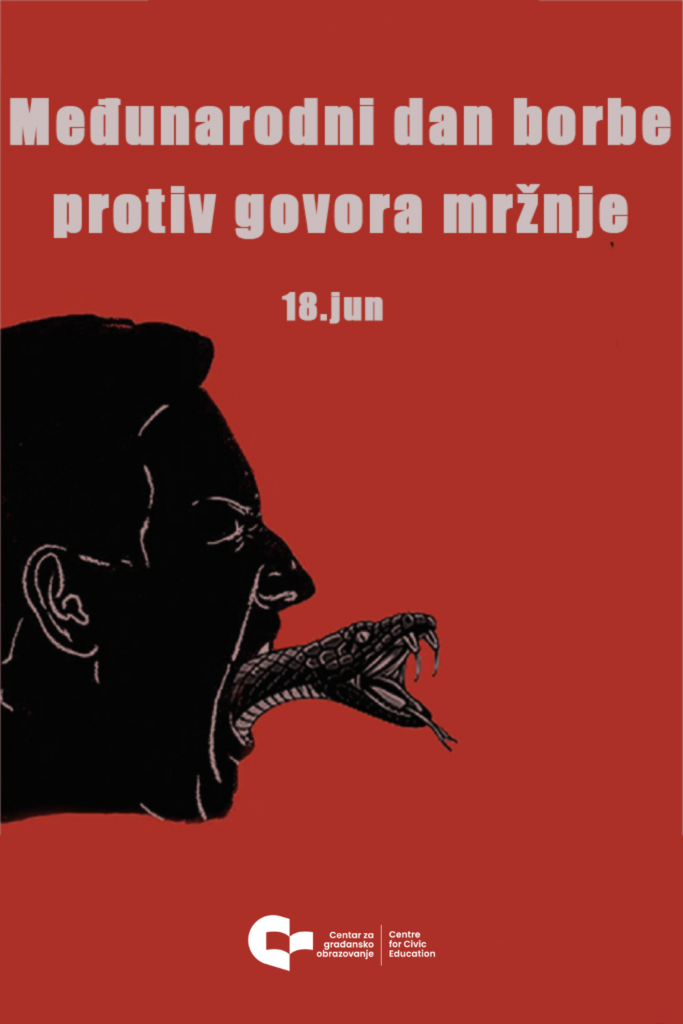Centre for Civic Education (CCE), on the occasion of the International Day for Countering Hate Speech, which is marked on 18 June, warns that hate speech in Montenegro is becoming an everyday occurrence, especially in the online space which often serves as its megaphone, while the reactions of institutions are insufficient and inconsistent.
The problem escalates during social crises or pronounced disagreements, whether it is about events such as the tragedy in Cetinje, when portals and social networks were flooded with inappropriate and dehumanising comments, or in cases where women publicly express views different from the dominant narrative and face waves of misogyny and hate speech. Often, it is only a small step from unsanctioned content online to actual discriminatory attacks.
Through publications such as “Digital Activism Against Hate Speech “, a manual focused on the fight against e-homophobia, biphobia, transphobia and violence in the digital space, and ” On the other sides keyboard “, which sheds light on hate speech from the perspective of citizens, rights, and concrete cases, the CCE strives to raise awareness and empower individuals and organisations in confronting this phenomenon.
It is also concerning that hate speech is increasingly coming from elected representatives of the authorities. Statements containing elements of open discrimination, homophobia and misogyny such as the one recently made in the Capital City Assembly by Mitar Šušić , not only contradict the fundamental values of human rights but are also on the margins of legality and should be unequivocally condemned by all political actors.
“An open and inclusive dialogue is essential, everywhere in the world, and especially in a country like Montenegro, with its rich ethnic, religious, and linguistic diversity. That is why I am concerned about hate speech and the divisions caused by narratives – on television, the internet, at sporting events, and even in schools,” said the United Nations High Commissioner for Human Rights, Volker Türk, during his visit to Montenegro, emphasising that some politicians resort to divisive rhetoric, and at times even open hate speech, for political purposes.
Research by the Centre for Civic Education (CCE) shows that over 60% of Montenegrin citizens see political parties and their bot networks as the main sources of hate speech on the internet. One third of respondents do not report such speech due to a lack of trust in institutions, and more than a quarter do not believe in the effectiveness of media and social network self-regulation.
Although the laws provide for the sanctioning of hate speech, their implementation is rare, ineffective, and inconsistent. This points to a low level of digital and media literacy, as well as the need for educational campaigns, legislative changes, and strengthening of institutional capacities for better protection against digital threats, which will be the focus of the new CCE project “Protection of Rights and Promotion of Digital Citizenship – Montenegrin Digital Shield (MDS) ” .
The fight against hate speech is not only a legal matter but also a broader social and political issue. The Centre for Civic Education (CCE) calls on institutions, as well as public figures from various spheres, to lead by example in promoting responsible and dignified communication, as they have a key role in shaping public discourse.
Maja Marinović, Programme Associate

